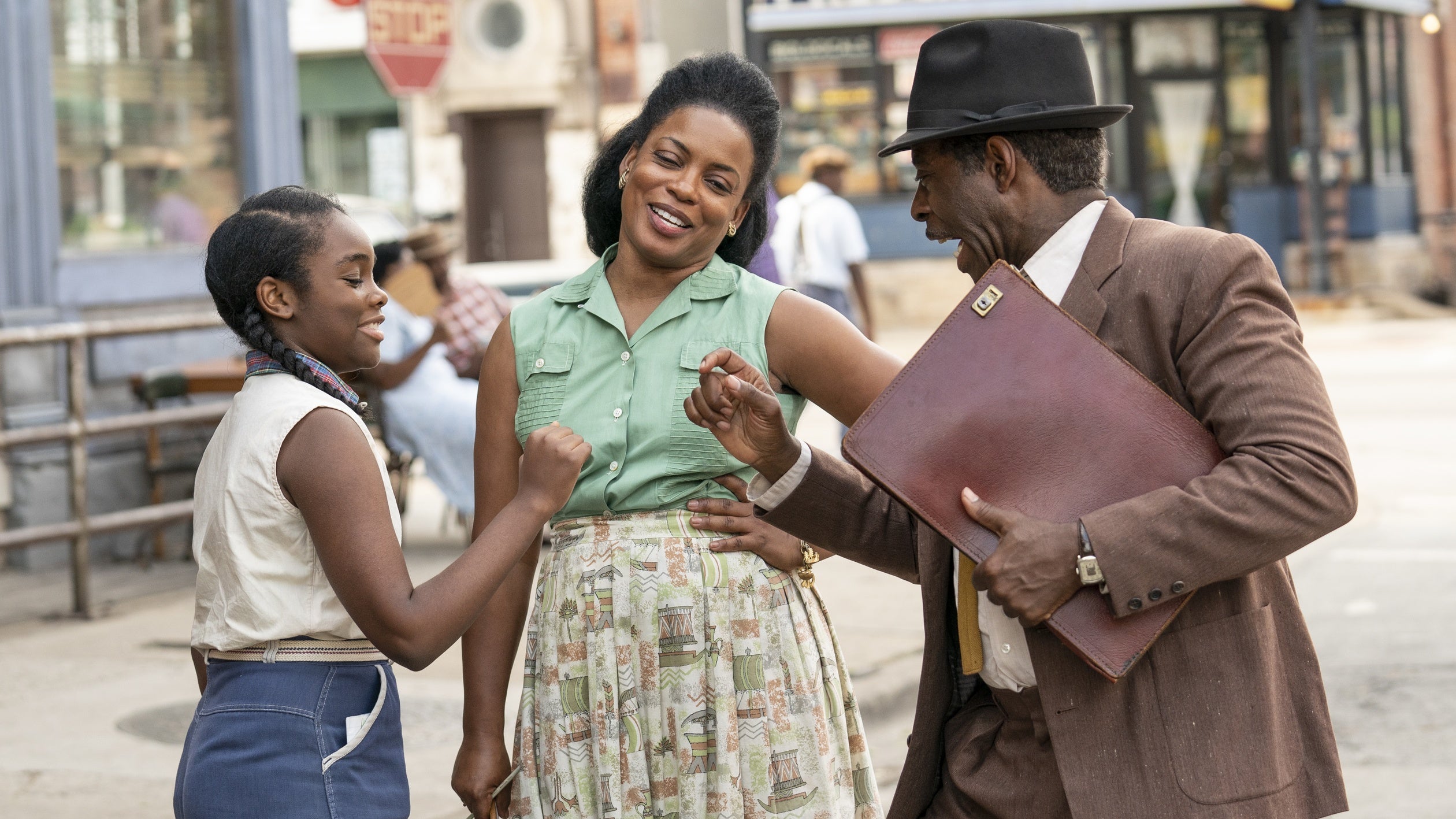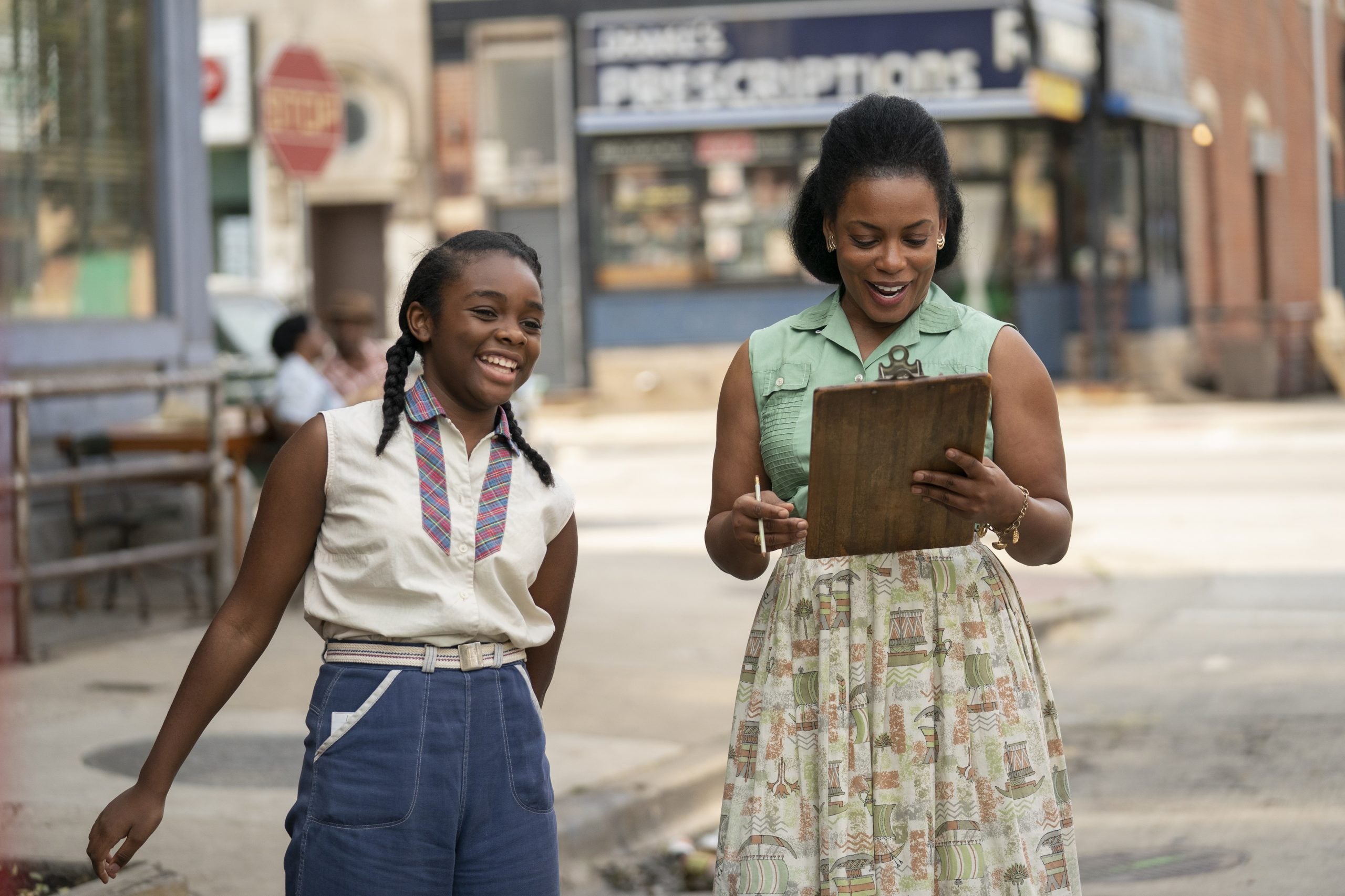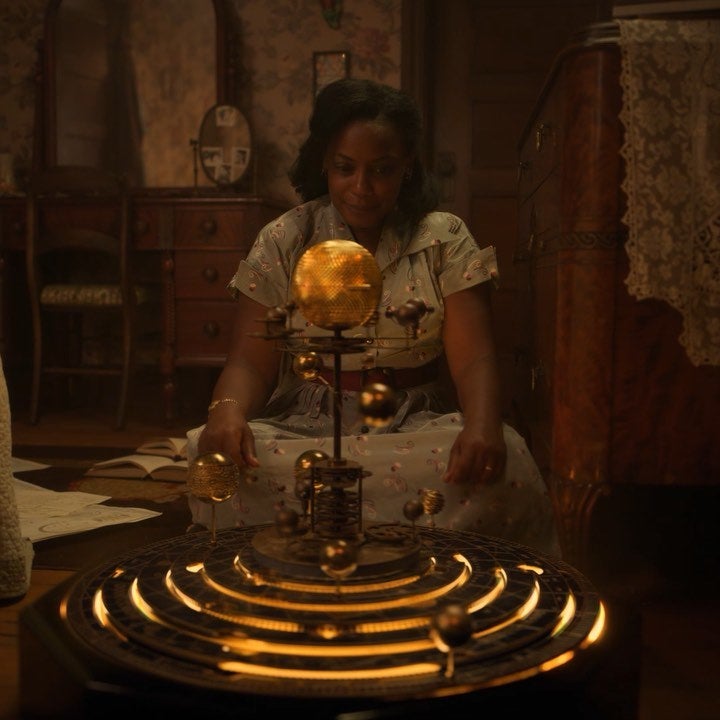
Sci-fi author H.P. Lovecraft’s soul isn’t resting easy in the afterlife. First, in 2016, Matt Ruff capsizes his racist legacy and writes a critically acclaimed horror novel—Lovecraft Country—that centers a Black family and their survival. Then four years later, Underground creator Misha Green uses Ruff’s novel as inspiration for HBO’s Lovecraft Country series.
In Green’s show, which premieres August 16, Atticus Freeman (Jonathan Majors) and his family and friends do battle with 1950s monsters—as in the grotesque Elder Gods and monstrous racists.
Some folks may debate about separating the art from the artist, but for Aunjanue Ellis (who plays Atticus’s aunt Hippolyta Freeman) in this case, the two cannot be segregated.

“You cannot separate H.P. Lovecraft’s White supremacy and his racism from the writer that he was because it fueled his work,” says the actress from her Mississippi porch. “For him, Black people were the monsters. The Italians, Spanish, Jewish people, those were the monsters. The idea that his name is associated with a series in 2020 is essentially about Black self-liberation. [H.P.] would die again in his grave. The name of the series is a political act in itself.”
Ellis’s red lips part to smile into her phone’s screen as she shares that last tidbit. She is no stranger to political acts. Recently, she used her platform to end Mississippi’s use of the Confederate battle flag. (The mayor finally retired it this year before the Fourth of July.) And Ellis is no stranger to the horror genre. Growing up, she watched classics like Cujo and The Shining with her mother and sister, but Ellis preferred to cuddle up in the corner with one of Stephen King’s novels over staring at the screen.
However, the bibliophile didn’t read Ruff’s work in preparation for the Lovecraft Country series. “I’m real impressionable. I didn’t want to come in like, ‘Well, the book said.’ I didn’t want to do that,” the Emmy nominee admits, easing into a more comfortable position in a wicker seat. “I wanted whatever I did to be fully what Misha wanted. Misha embraces the strange.”
The same way Green’s Underground and Jordan Peele’s (he’s an executive producer on the project) Get Out and Us flipped narratives and pushed audiences to think deeper about metaphors, the onscreen action and protagonist’s motives, Lovecraft Country follows a similar path. And Ellis is keenly aware that the show is breaking new ground. “I don’t know how people are going to respond to it. I know it’s strange and it speaks to the absurdity of being Black in this country, and it does so in a way that, I think, is bold and innovative. And it’s done in a way that I haven’t seen before.”
Blerds will geek out on Lovecraft Country’s sci-fi meets Afrofuturism vibe.
While there’s so much that’s fresh, like Green’s use of audio from Ntozake Shange, Gil-Scott Heron and James Baldwin against a 1950s production, there’s so much that’s familiar too. Like the focus on friendship, love and family. The whole story is set in motion after Atticus decides to search for his missing father and his uncle George (Courtney B. Vance) and childhood friend Letitia (Jurnee Smollett) come along for the eventful ride.

Ellis’s Hippolyta is married to George and in the first episode viewers are treated to old school Black love, morning sex and pillow talk. George publishes The Safe Negro Traveler Guide and Hippolyta cozies up to her hubby, while sharing that she’s eager to take his place on the road to write the guide’s entries. But George doesn’t want his wife out there in those Jim Crow streets and sundown towns.
“Hippolyta is a traveler. Imagine this. She’s an astronomer in 1950s America. Do you know what I mean? And she’s a Black woman. There aren’t a lot of job opportunities for her to do her thing. George is trying to protect Hippolyta, but she feels that he is repressing her. Repressing her vision. Repressing who she wants to be and who she really, really is,” Ellis says, getting excited about her character’s journey. “If you hang with it after episode five, you’ll see how much of a traveler she is.”